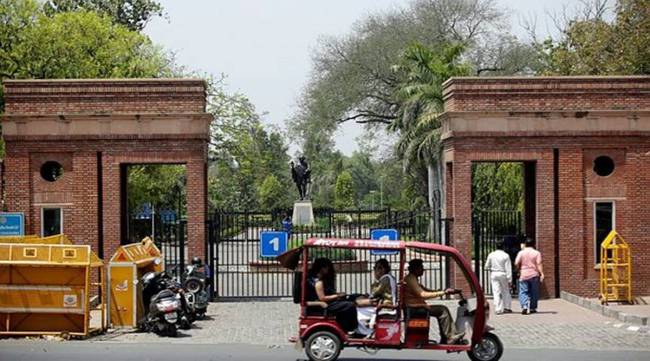Opinion Scrapping of DU’s B.El.Ed programme: A grave loss for India’s education system
Instead of improving the programme or acknowledging challenges facing it, authorities have chosen to toss the baby with the bathwater
 B.El.Ed was a new programme that had recently been launched in the University of Delhi. (Express Archives)
B.El.Ed was a new programme that had recently been launched in the University of Delhi. (Express Archives) On May 9, as reported by The Indian Express, it was announced that the Bachelor of Elementary Education (B.El.Ed) programme is set to be replaced with a new programme at the University of Delhi. Some 25 years ago, as a research scholar at JNU, I wasn’t sure where I would fit in after submitting my PhD. I wanted to teach and research on matters around school curriculum, pedagogy, assessment and education’s role in reproducing or mitigating social inequalities. But I had a formal degree in sociology, not education. Moreover, education was equated narrowly with teacher training colleges which had relatively less status and rigour. By then, educationists, practitioners and researchers had begun to draw connections between the malaise impacting the world of schools and the way teacher education was looked at. For this reason, the latter had begun to draw a lot of attention.
It was then that I came across B.El.Ed — a new programme that had recently been launched in the University of Delhi.
This programme was so different in its vision, imagination and execution from existing teacher-education programmes that it was hard not to appreciate its main features. It was an integrated four-year programme to train those keen on teaching elementary school children, that is, students from Class I to VIII. It was a bilingual programme and was purposely housed in a college of higher education so that young interns did not feel alienated or isolated from other students.
It had subjects related to Indian society, psychology, language, basic concepts in education, among others. It also had the pedagogic aspects of science, language, mathematics and social science. Courses like gender and schooling, curriculum, etc., shocked and excited them. It made students realise that textbooks were often victims of political interference and used as tools to manipulate children’s thinking. A course like gender and schooling angered them. Then began the process of questioning everything and being defiant. For example, they also learnt that obedience was not necessarily a virtue for women and that it was equally important to challenge prevailing social norms. A programme with four years of learning and a 17 week internship period in the final year helped them understand how students behave in school and how learning can be made engaging for them.
It was heartening to see a large chunk of girls back then — initially disgruntled because they were coerced into the programme by their parents — gradually transform into mature and confident girls. It was amazing to see the empowering potential of a curriculum that touched them. Self-development workshops — a crucial component of the programme — helped girls reflect and be open to change.
The larger context was set by courses like Contemporary India which would talk of contentious issues like inequality, marginality, stratification, casteism and communalism. Unlike other courses which followed the status quo and only paid lip service to critical thinking, the BEl.Ed. programme unabashedly encouraged students to be reflective. The space to express their views freely extended outside the classroom as well. Many of them began to speak fearlessly about all that was wrong with our schools and the unholy nexus between the education system and our society.
Given the impact I have seen this programme have on aspiring teachers, I was saddened to hear about its closure and the fact that it would be replaced by a four-year course, called the Integrated Teacher’s Education Programme (ITEP). The new programme will reportedly offer B.A. B.Ed/ B.Sc B.Ed and B.Com B.Ed and is in accordance with the new school structure laid out in the National Education Policy (NEP) 2020 — foundational, preparatory, middle and secondary (5+3+3+4).
What is more disturbing is the way the new programme is being forced upon students in such a haste and in an undemocratic fashion. It is heartbreaking to see B.EL.Ed — the first ever and the only professional and integrated degree for elementary classes, mandated under the Right to Education Act, 2009 — being dropped so unceremoniously. It is true that no single programme can fulfil all criteria and the B.El.Ed course was no exception. Questions of scale, salary, and recognition plagued it. The fact that no co-ed or male college ever applied for the programme also speaks volumes about the fact that teaching is still regarded as a woman’s profession.
It is not difficult to understand why our country’s school education suffers so. The problems which were emphasised in Premchand’s Bade Bhai Sahib, written in 1910, such as rote learning, the tyranny of board exams, sterile and pedagogically defunct textbooks, have persisted. Instead of improving the programme or acknowledging challenges facing it, authorities have chosen to toss the baby with the bathwater. It has become a fad to ignore existing ideas, traditions and solutions and look for “new” ones. We have a history of establishing committees which oppose and negate each other. We may be successful in establishing this culture. But at what cost?
The writer is Professor, Centre for Education, TISS, Mumbai






